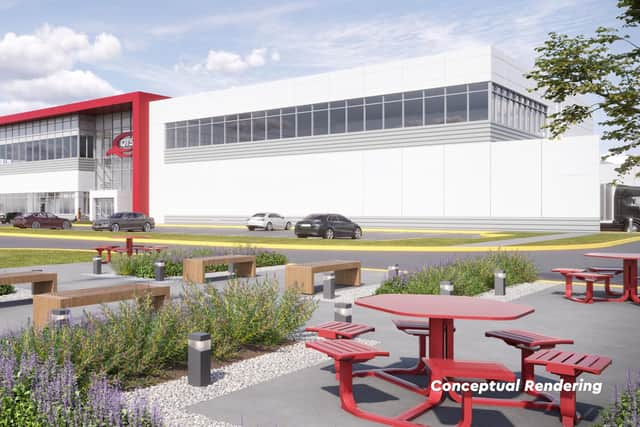Expert explains that rise of AI behind increasing demand for data centre planned in Northumberland
and live on Freeview channel 276
Northumberland County Council’s cabinet is expected to give the green light for US private equity firm Blackstone’s acquisition of the former Britishvolt site at Cambois on Tuesday.
The company, alongside its data centre subsidiary QTS, plan to develop either an AI data centre campus or a hyperscale datacentre campus on the site, creating hundreds of jobs.
Advertisement
Hide AdAdvertisement
Hide AdAlex Webb, Data Centre expert and Head of Sales at IT service provider Redcentric, explained that the growing use of AI means more such data centres will be required in the future.


A key difficulty in building the sites centres around power supply, making Cambois an ideal location thanks to its proximity to clean energy at Blyth.
Mr Webb said: “There is currently a rising demand for the development of data centres, such as the Blackstone site. One of the major factors is the accelerated innovation in artificial intelligence and the need for additional computing infrastructure.
“In the context of AI, the significance of data centres is magnified, as the training and deployment of AI models demand exceptional levels of computational power and data storage capacity. As we are set to enter a new era of AI, we must address some of the most pressing challenges of current technologies whilst raising important concerns about the future landscape of AI development.
Advertisement
Hide AdAdvertisement
Hide Ad“However, issues relating to power availability have been a recurrent theme, affecting the data centre expansion. According to recent predictions, data centres are found to be responsible for up to three per cent of global electricity consumption and this is set to increase to four per cent by 2030 if predictions are accurate.
“In major European markets such as London and Frankfurt, despite a strong demand for new data centre capacity, securing adequate power from the grid has become increasingly challenging. This has led to delays in major projects and has complicated plans for future expansions.
“One of the most critical challenges faced by today’s AI is the enormous energy requirement for training and running complex models. In order to reduce the carbon footprint associated with AI operations, new data centre projects must focus on energy-efficient computing and possibly incorporate renewable energy sources. This will help to set a new standard for sustainability in the field.”
AI has increasingly made headlines in recent months as text-based learning software such as OpenAI’s ChatGPT and Google’s Gemini develop at pace. OpenAI has also recently showcased its new Sora video generation software.
Advertisement
Hide AdAdvertisement
Hide AdWhile there are hopes that AI could have positive impacts such as the generation of new treatments for diseases such as dementia and cancer, concerns have also been raised about the potential impacts on jobs, amid fears workers in some sectors could see their roles replaced by AI.
The county council’s cabinet is expected to sign off on the proposals. The multi-billion pound plans are expected to create thousands of jobs both on-site and in the supply chain.
The council will also receive up to £110m in exchange for the amending of a buy-back option currently on the land.
Redcentric is a UK-based service provider that operates eight data centres across the country.